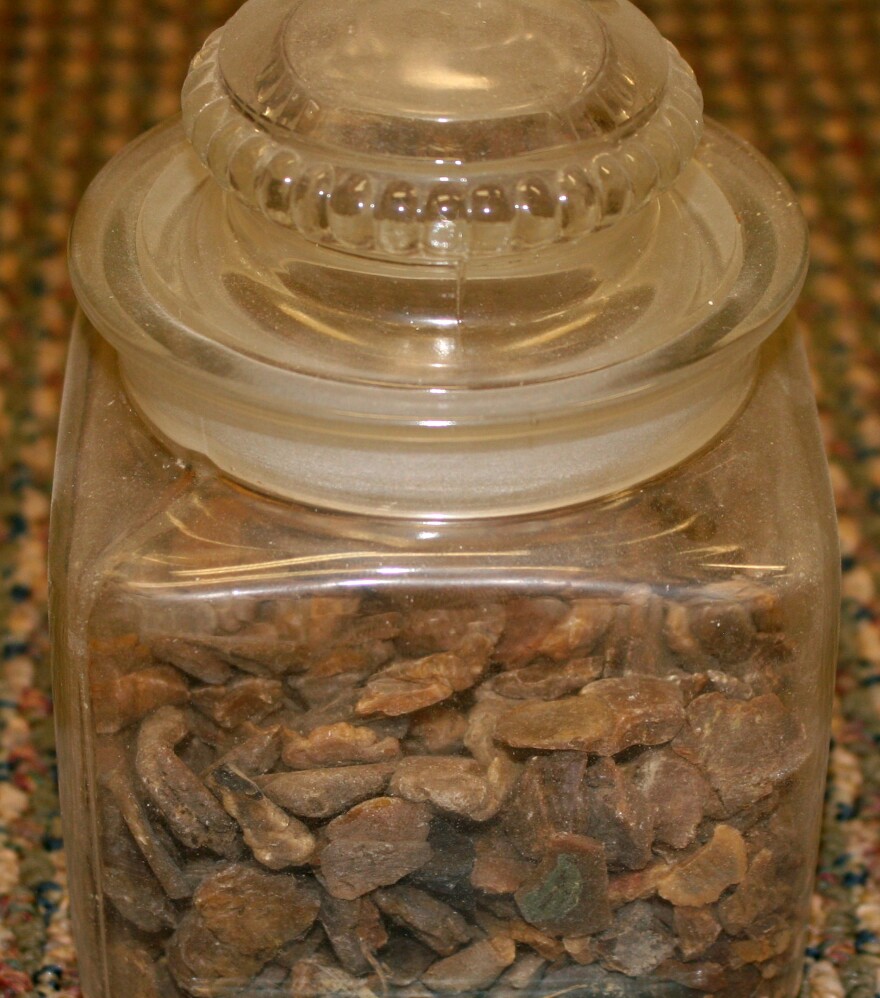If you want a peek into the history of drugstores, there's the History of Pharmacy Museum at the University of Arizona College of Pharmacy, in Tucson, Ariz.
A hand-carved wood prescription counter helps recreate the look of a small-town pharmacy in the 1800s. And some of the old-timey medicines give you a sense of what the place must have smelled like.

"There's a compound called asafoetida. The common name is 'devil's dung.' It has a terrible smell," says museum curator Richard Wiedhopf. "People would hang it around their neck to prevent contagious disease because, hey, you didn't want be around somebody who smelled like that."
But the centerpiece of the museum is a penny candy jar of filled with old wads of gum said to have been chewed by the infamous gangster, John Dillinger. In the 1930s, Dillinger ate at a pharmacy with a lunch counter in downtown Tucson.
"And when he was served, he took the gum out of his mouth and stuck it under the counter," Wiedhopf says. "About a day or two later the headline in the Tucson paper was 'John Dillinger Arrested.' And so this pharmacist scraped all the gum off under counter where Dillinger was sitting, put it in a jar and we have that on display in the museum."
Wiedhopf says there's no way of knowing if the museum's specimens were really chewed by Dillinger. But that's their story and like the gum under the table, they're sticking to it.
Morning Edition is visiting unsung museums all across the county, those little-known but ridiculously interesting gems you're glad you stumbled across.
Copyright 2021 NPR. To see more, visit https://www.npr.org.





